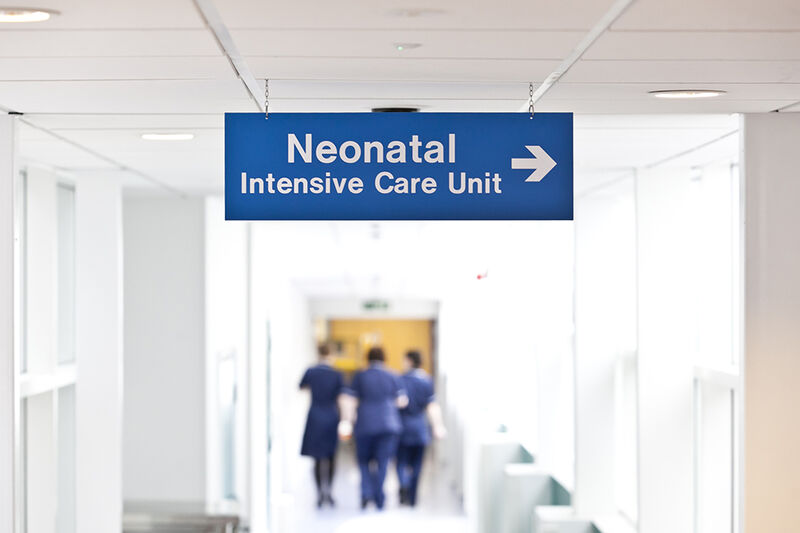How can working on a neonatal unit affect your mental health?
The neonatal unit can be a stressful and difficult environment for the staff caring for babies and families.
Kati says, “I see so many similarities between staff and parents. They can be stressed, tired, emotional and anxious and can find communication difficult.”
Since starting her role nine years ago, Kati has worked hard to create an environment where staff are supported, either through regular group support sessions or speaking to her privately. This support has made a difference on the unit, such as a reduction in staff absences, improved staff wellbeing and improved relationships between parents and staff.
How does having mental health support for staff help families?
Kati told us, “Caring for staff is all part of caring for families – if staff are working to the best of their abilities then we can provide the best support to families.
“The work of health professionals on a neonatal unit depends on their humanity – being able to be there for babies and families. But humanity also makes us vulnerable. We can have lots going on in our lives and there can be challenges at work or at home that can feel hard to manage when we are at our most vulnerable.
“Health professionals are touched by their work with families, but it shouldn’t be wounding. If it does that’s when they need to get help. Often health professionals recognise stressed parents, but sometimes they don’t recognise when they are stressed.”
Read this research paper that outlines recommendations for staff support to avoid stress and burnout.
How can staff support their mental health?
“I think it’s always helpful to start your shift by asking yourself, ‘How am I feeling?’ and ‘what do I need today?’” Kati says.
“Taking a moment to think about the things you enjoy, and what helps you when you are struggling is important. It might be playing the piano, your love for painting or getting out on your bike. We can lose sight of the things we enjoy, and coming back to these things can help us when we feel we are finding it hard to manage.”
We know neonatal units work differently, and not all have the same access to psychological support services – an issue we have addressed in our policy reports. It may not be possible to talk to someone like Kati, but other support is available and it often starts with a conversation.
“Sometimes a conversation with a member of staff next to you can make a difference. Don’t assume you are the only one feeling how you are feeling. The person next to you is going to listen and they may help you not to feel alone.
"When health professionals can prioritise their own wellbeing, they become free to attend to babies and parents.”
If you would like support and there isn’t any available on your unit there may be a staff counselling service in your hospital. The Royal College of Nurses has a staff counselling service and organisations like Mind can also offer support. Alternatively you might like to talk to your GP who could refer you to other psychological support services.
